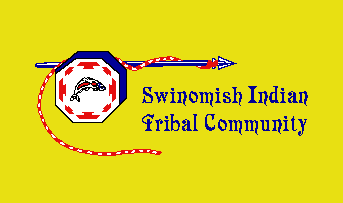Swinomish Indian Tribe Awarded $394.5 Million in District Court in BNSF Trespassing Lawsuit

The Swinomish Indian Tribal Community has won a $394.5 million trespassing lawsuit against BNSF Railway.
In an eighteen-page ruling issued today, District Court Judge Robert S. Lasnik ordered that BNSF disgorge total trespass profits of $394,517,169 to the Swinomish Indian Tribal Community. Specifically, the Court ordered that BNSF disgorge net profits of $362,267,169 attributable to its trespass across the Swinomish Reservation from September 2012 to May 2021. In addition, the Court ordered that BNSF disgorge a further amount of $32,250,000, representing the use value of the aftertax profits arising from the trespass. Taken together, the disgorgement amounts resulted in the total judgment against BNSF and in favor of Swinomish of $394,517,169.
Steve Edwards, Chairman of the Swinomish Indian Tribal Community said, “We know that this is a large amount of money. But that just reflects the enormous wrongful profits that BNSF gained by using the Tribe’s land day after day, week after week, year after year over our objections. When there are these kinds of profits to be gained, the only way to deter future wrongdoing is to do exactly what the Court did today – make the trespasser give up the money it gained by trespassing.”
The Tribe filed suit against BNSF in April of 2015 for violating the terms of an easement agreement it signed in 1991 allowing a limited number of trains and rail cars to cross the Swinomish Reservation in Skagit County.
Train tracks were laid across the northern portion of the Reservation in the late 1800’s, over the objection of the Swinomish Tribe and Federal government officials, according to the Tribe. In 1991, the Tribe and BNSF signed an agreement settling a lawsuit filed by the Tribe and the United States in 1976 for nearly a century of trespass. The agreement granted BNSF an easement but with important conditions: only one train of no more than 25 railcars would cross the Reservation in each direction daily, and BNSF would regularly update the Tribe on the type of cargo. In return, the Tribe agreed not to “arbitrarily withhold permission” if there should be a future BNSF request to increase the number of trains or cars.
According to tribal leaders, BNSF never provided notice to the Tribe of its intention to run unit trains of Bakken crude oil across the Reservation. In September 2012, the Tribe said it learned from media reports that “unit trains” of 100 railcars or more were beginning to cross the Reservation. By April 2015, BNSF was reportedly running six 100-car “unit trains” per week across the Reservation, more than four times as many railcars daily as permitted by the easement. The tracks are adjacent to the Tribe’s economic center, including a hotel and casino and other facilities. The intended development of this economic center was one of the primary reasons for the limitation of the number of trains and cars incorporated into the easement.






